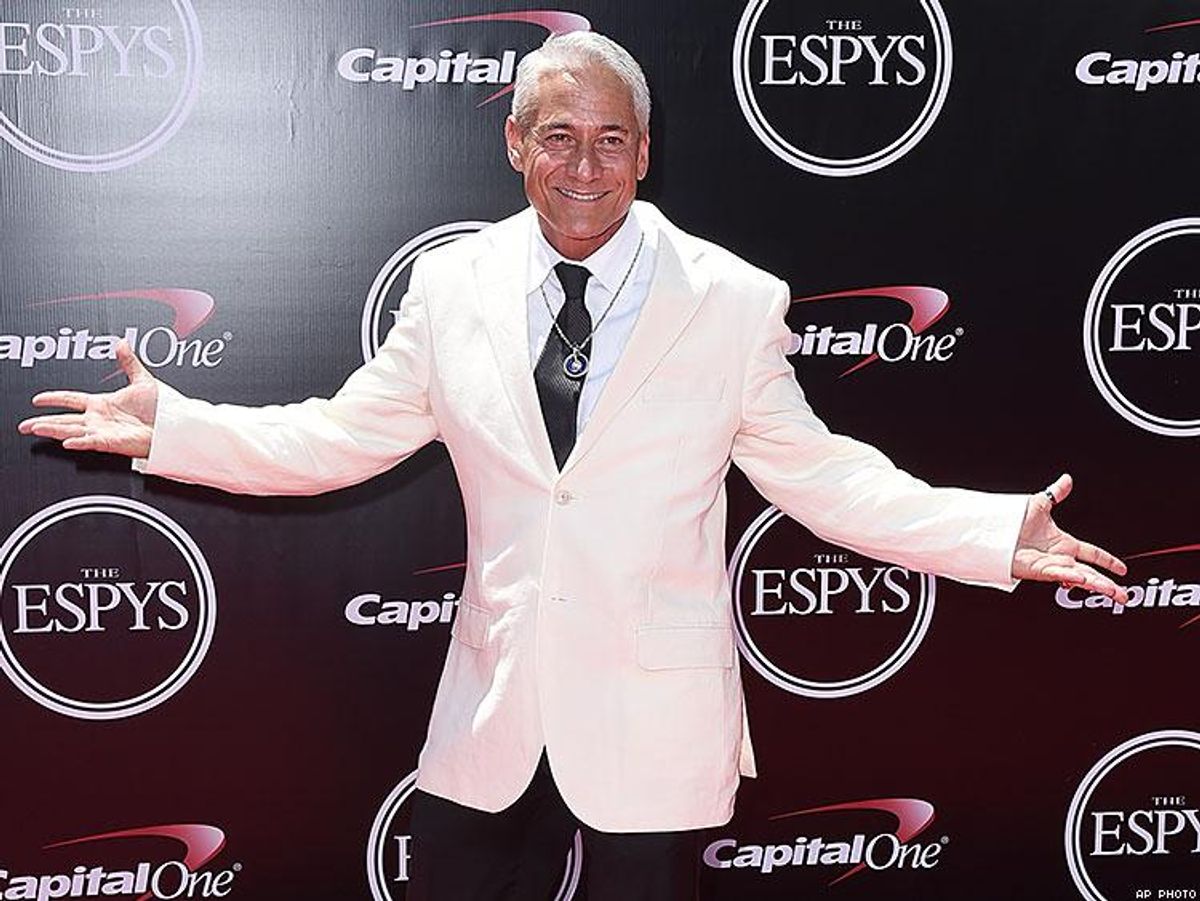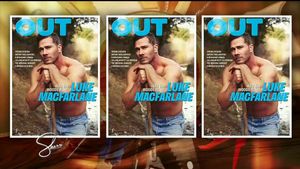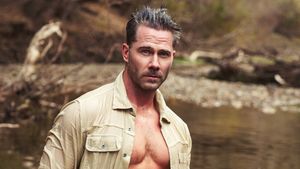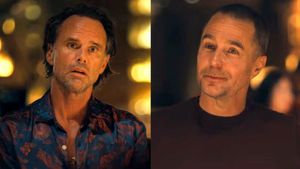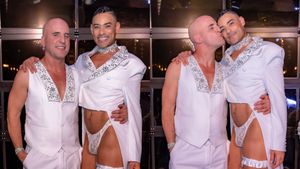Like all of us, Greg Louganis watched that whole kerfuffle with the cast of Hamilton with concern. President-elect Donald Trump demanded an apology because the cast confronted Vice President-elect Mike Pence about whether he'd make an effort to represent all people, no matter their race or religion or sexual orientation.
Louganis, who is also an actor in his post-Olympic diving life, told The Advocate that the Hamilton cast had been "very, very appropriate."
"I'm sorry, we're performers, we are actors, and we are pushing boundaries of questioning social norms and informing and politicizing through the words of our playwrights," he said. "That's what the whole medium is all about. It's about trying to affect change."
Louganis, who is well known for his advocacy for HIV research and awareness, held up as examples Rent and the work of Larry Kramer, who wrote The Normal Heart.
What's really ironic, though, is where Louganis was physically located during The Advocate interview as he talked about the important role artists have in affecting change.
He was talking via Skype from his hotel room in St. Petersburg, Russia, where he'd just finished the night before a question-and-answer session about his documentary Back on Board. Somehow activists in Russia manage to put on an LGBT film festival every year by coordinating with police and embassies to make it happen smoothly.
Louganis was in Moscow in 2014 after Vladimir Putin signed the "gay propaganda" law. After the Olympics in Sochi, Louganis visited the Open Games -- a gathering of LGBT Russian athletes meant to be a statement about inclusivity. Louganis recalls venues canceling on the athletes, bomb threats, and other mischief. Literally every event of the Open Games was disrupted, except the one he announced he would attend, a table-tennis tournament. The Russian government acts differently when the world is watching. Meanwhile, Louganis has watched changes unfold for Russians.
The general anti-LGBT climate there "kind of trickles down into other kinds of social issues," Louganis observed, noting specifically that cases of HIV go unreported when people fear losing their jobs. "I think a lot of the numbers that they have are just guesstimates," he said.
Still, the feeling among young people Louganis meets on these trips is that being anti-LGBT is "more the older guard" and one day "they'll go evolve." In other words, young people are hopeful that the arc of justice will bend in their direction.
The Louganis documentary was shown at this year's LGBT film festival, followed by an hourlong Q&A session. The whole event was at a bar, "kind of a rather unusual setting," kidded Louganis.
That's indicative, though, of the "challenging environment to be in Russia and be gay," he said. Louganis met one of the event's hosts, who also happens to be HIV-positive. The man had traveled to Paris to get married and looks forward to being married to his husband in his own country someday.
"It's important for me to be here," Louganis said, "to hopefully be a beacon of hope."
That's what Louganis has always been to so many people in the United States. He is right now writing an autobiographical musical, appropriately titled Hero, with the help of collaborators. He's always used his own story and his choices for the betterment of society. And that's partly why the AIDS Service Center in New York City honored him Tuesday with its Changemaker award. The center helps HIV-positive New Yorkers with their health care, housing and generally with being self-sufficient.
Louganis not only changed the course of sports history by sweeping gold medals in diving events in two consecutive Olympics -- 1984 and 1988 -- but he also came out as both gay and HIV-positive in 1995, a time when there were still few out LGBT people in public life. He released a memoir, Breaking the Surface, the next year, and it became a New York Times best seller and a TV movie as well.
When he talks about how the world should change, whether it's in sports or in film or in the musical he's developing, Louganis is drawing from real-life lessons.
"I don't go beyond my expertise," he said. "And my expertise is who I am and my life, my experience -- so just sharing from that space."
Maybe that's another lesson from the Hamilton confrontation, that people's experiences matter. People speaking up for themselves and sharing their own stories matters, whether in art or in sports.
"That's what it's about," said Louganis. "I mean it's about affecting people, informing people, touching people. That's the medium of art."
RELATED EVENT: Join Greg Louganis and other luminaries for a World AIDS Day event on December 1 in Beverly Hills as a portion of the AIDS Memorial Quilt is on display. The Advocate is sponsoring the event, and you can learn more here.
